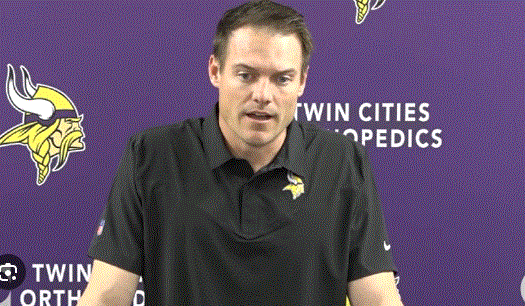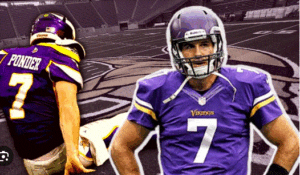
Christian Ponder Reflects on the Shoulder Injury That Changed Everything
More than a decade after his NFL career began—and quietly ended—former Minnesota Vikings quarterback Christian Ponder is opening up about a pivotal moment that altered his trajectory as an athlete. In a recent appearance on The Post Game Podcast with Joe Poduslenko, the former first-round draft pick shared candid reflections on how a shoulder injury in college affected not just his physical performance, but his confidence and mental well-being, offering long-awaited context for his underwhelming pro career.
Once seen as a rising star at Florida State University, Ponder’s path to the NFL seemed secure in 2009—until a single game changed everything.
The Injury That Shifted Everything
During his junior season, Ponder was on a tear. He was widely projected to declare for the NFL Draft early, riding a wave of solid performances and growing buzz. But in a Saturday night road game at Clemson’s Death Valley, things took a turn.
“I was actually probably going to go pro that year,” Ponder said on the podcast. But leading up to that pivotal game, he had suffered broken ribs and missed an entire week of practice. “I was a game-time decision,” he said. “I decided I wanted to play, but I was not mentally prepared.”
Ponder started strong, helping Florida State build a 17–6 lead. But as the game wore on, things fell apart. He threw four interceptions, one of which nearly resulted in a pick-six. Frustrated and driven by pride, Ponder chased down the defensive back and tried to deliver a big hit.
That decision cost him. He suffered a third-degree AC joint separation in his throwing shoulder—an injury that required surgery and ended his season.
More significantly, he believes it altered the course of his playing career.
“I just never felt like I threw the football the same,” he admitted. “I had this confidence beforehand… I just trusted my arm and my ability. After that injury, I just never felt the same.”
NFL Dreams Meet Reality
Despite the injury, Ponder returned to Florida State for his senior year, performed well enough to regain interest, and was selected 12th overall by the Minnesota Vikings in the 2011 NFL Draft. It was a high honor—and an immense pressure. But the promise he once showed never quite translated to the NFL level.

Initially serving as a backup to Donovan McNabb, Ponder took over as starter midway through his rookie season. He showed flashes of potential—most notably a 72-yard completion against the Packers in his debut start—but overall struggled with consistency and decision-making.
His best season came in 2012, thanks in large part to MVP-level play from Adrian Peterson, who led the Vikings to a 10–6 record and a playoff berth. Ponder passed for 2,935 yards and 18 touchdowns that year, earning a modest 81.2 passer rating. However, fate intervened again: an injury prevented him from playing in the postseason, and backup Joe Webb started in his place.
After that, Ponder’s career quickly lost momentum. He regressed in 2013, and by 2014, the Vikings had moved on, drafting Teddy Bridgewater as their new franchise quarterback. Ponder bounced around the league over the next two years with brief stints on the Raiders, Broncos, and 49ers, but he never played another NFL snap. By 2016, his professional career was over.
Anxiety and Expectations
While the injury was the turning point, Ponder now acknowledges that mental health and confidence were equally impactful in shaping his path. He admits he struggled with the weight of expectations, especially amid whispers that he was “overdrafted.”
“I dealt with a lot of anxiety,” Ponder said. “If you’re not confident in your abilities, especially as a quarterback, you’re always going to be playing from behind.”
In today’s game, it’s become more common for athletes to work with sports psychologists and performance coaches to manage the intense pressure that comes with professional sports. But Ponder says that was not something he had access to—or even thought about—during his career.
“Mental health wasn’t as widely supported then as it is now,” he added. “I wish I had worked with someone.”
That lack of support, coupled with his declining confidence after the injury, created a toxic spiral. The once-bright star who trusted his arm and instincts found himself doubting every throw.
Life After Football
Now 37 years old, Ponder has moved on from football. He’s embraced a new chapter as a father and entrepreneur, focusing on family and business ventures rather than first downs and touchdowns. His story serves as a quiet but powerful reminder that talent alone doesn’t guarantee success—especially when injury and mental challenges go unaddressed.
For fans who once hoped he would be the franchise quarterback to lead the Vikings into a new era, Ponder’s candid reflections provide some overdue clarity. The gap between potential and performance wasn’t simply a matter of skill—it was a story of injury, pressure, and unspoken struggles.
And while the headlines may have faded, Ponder’s message now resonates more than ever in a sports world that’s slowly beginning to understand the importance of mental health alongside physical performance.
Leave a Reply